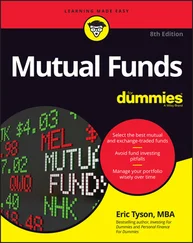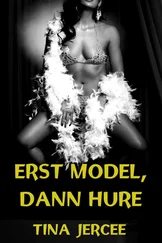“So?”
“Doesn’t she have any friends in Wisconsin?”
“We grew up together,” Camille said. “Anyway, what does it matter?”
“It just seems… I don’t know. Excessive. You don’t see me calling my friends from Wisconsin every day.”
She opened the dishwasher. “Which friends are you talking about?”
“What do you mean?”
“Nothing. I just didn’t know you kept in touch with anyone, is all.”
He looked at her angrily. “Maybe because you erase my messages from the machine.”
Camille sighed. “That was one message. A year ago. And it was on the machine for a month.”
“That’s not the point.”
“Did you ever even listen to it?”
“Christ, I’m up to my neck in work! I can’t drop everything just because an ex-neighbor calls!”
“Please don’t yell at me,” Camille said.
She never lashed back or used bad words. Once, when they were playing doubles with the Hathaways and he kept stealing her shots, she’d called him — bafflingly — a “fud.” It occurred to him that they hadn’t played tennis with anyone for months.
“Warren, what’s going on?” she said sadly. “Is there something you need to tell me?”
Warren bent over his Grape-Nuts, avoiding her eyes. It was her calmly disappointed face, so pale and reasonable, that drove him crazy. The bird clock over the stove chirped like a summer tanager. Camille’s parents had given it to them years ago, when they’d moved into the lake house in Nashotah. Warren couldn’t hear the clock go off without thinking of the creaky, ant-infested house, wondering why they’d ever left.
After breakfast, he walked out to Lyle’s Renault and squeezed behind the wheel and tried once again to move the seat back, his head touching the roof so that he was forced to stoop in front of the rearview mirror. He looked to himself like a giant mosquito. A half-naked Barbie doll dangled from the mirror, twirling from a shoelace noosed around her neck. The Barbie doll had on a T-shirt that said SAVE THE PARAMECIUM. Warren turned the key and the ignition squealed, jolting his fingers. He cursed. He tried again and the engine turned over, accompanied by a noisy, tailward rattle.
The rattling persisted as he drove up High Street. Warren wondered if the muffler was going to fall off. He slowed at the stop sign before John’s Canyon Road, the brakes whining loudly enough to hurt his ears. The Shackneys’ house loomed from across the street. It was the biggest house in Herradura Estates, a Spanish Revival with an indoor pool and a dopey ranch sign at the end of the driveway that said HACIENDA DE SHACKNEY in lariat-style script. The sign had been weathered to look antique. Standing beneath it, clutching surfboards, were the Shackney boy and a kid with hair slanting diagonally across his face. They had the invincible look of eleven-year-olds who didn’t dress all in orange. He could not imagine what blissfully untroubled parent would pick them up at this hour to take them surfing.
“Nice car,” the Shackney boy said.
“What?”
“Are you, like, French?”
“No,” Warren said. It dawned on him, too late, that they were making fun of him. He pointed at the ranch sign. “Are you, like, Spanish?”
“You should get your brakes checked,” the kid with slanty hair said.
“Why don’t you kids mind your own business,” he said angrily.
“Is that your Barbie doll?”
Warren stuck his arm out the window and gave them the finger. It was remarkably satisfying. Pleased, he looked up at the house and saw Mitch Shackney — the father of Dustin’s girlfriend — watching him from the top of the driveway.
Warren touched the gas and the Renault rattled off, sending a desolate chime back from the canyon. He wondered if his mind was betraying him, like his own father’s. When Warren was seven years old, his dad had ushered him onto the roof on Christmas Eve and told him he was going to kill Santa Claus. This was in Oconomowoc, the town in Wisconsin where he grew up. His dad, an avid hunter, had grabbed one of his 12-gauges before leading Warren out of the attic and setting up watch on the hip of the roof. “We’ll wait here and then get him when he’s going down the chimney,” his father said. Warren, stiff with terror, sat there and waited for the far-off jingle of Santa’s sleigh. His father held the gun in his lap and combed the sky, as though he were scouting for ducks. They hunched there in the freezing moonlight for nearly an hour. Warren’s hands were numb, he had to take a pee — but he didn’t dare move. Finally, without a word, his dad sighed theatrically and led Warren back inside the house, his shoulders sagging in defeat.
Until that night, Warren’s dad had been a sober, hardworking man known for his friendly good nature. He owned a sporting goods store downtown and Warren remembered the constant huddle of men at the checkout counter, the smell of sweat and Brylcreem and sauerkraut. His dad’s only vice was poker, which he played every Saturday night at the Rotary Club, making sure to go home if he lost his five-dollar buy-in. He was unswervingly frugal, perhaps to a fault. After that night on the roof, though, he started to give things away to baffled customers or lock up the store whenever he felt like it, showing up at the house in the middle of the day to take a nap. One time, he came to dinner with one of Warren’s sock puppets, a dog with floppy ears and sewn-on buttons for eyes. He refused to talk normally, using a deep, woofy voice to ask for the salt. Warren thought it was funny at first, one of his dad’s jokes, but then his mom began crying and his father started to make the puppet cry as well, mimicking her quiet sobs.
The next day, Warren’s mom made his dad go to a doctor in Milwaukee, where they ran some tests and discovered he had a brain tumor. (“A sore in his head” was how she explained it to Warren.) He died a few months after that. They’d never been rich, but now Warren and his mother struggled to survive. The store was in a shambles; in his madness, his dad had given away half the merchandise and ordered three times what they needed from distributors. A rent increase crippled them further and the store went bankrupt. Warren’s mom, who hadn’t worked a day since she got married, ended up cashiering at the Exxon and waitressing at a German restaurant downtown four nights a week. Warren was left alone most of the time and developed a seepy warmth in his chest that he identified as shame. He was ashamed of the tiny apartment they’d moved to, ashamed of his mom’s gas-smelling hands, ashamed of the unfashionably wide ties she picked out for him at the Lakeshore Thrift. Oconomowoc was a vacation town, and every summer rich kids from Milwaukee descended on the lake for a summer of waterskiing and badminton and reckless sunburned drinking. Warren got a job at the Seven Seas Club, working as a dishwasher — what the old cooks there called a “pearl diver.” After lunch, he used to do yard work as well and see the kids lying down by the marina or drinking beer on their floatboats or rigging their C-boats for the weekend race, the lake cracking with gunshots. The girls were tall and willowy, with pageboys curling up their necks. They’d lie on the diving raft for hours at a time. Warren would watch them sunbathing with their slender legs crooked up, a row of lovely triangles, as he mowed the lawn in his uniform. He was proud of his tan Mediterranean skin and used to wear his shirt unbuttoned all the way down to his pants. He had some vague idea that he looked like James Dean. Once, while he was raking the easement down to the dock, he saw one of the boys with his shirt unbuttoned like his. The boy was raking the asphalt with a shuffleboard broom, the girls all giggling through their hands.
Читать дальше












